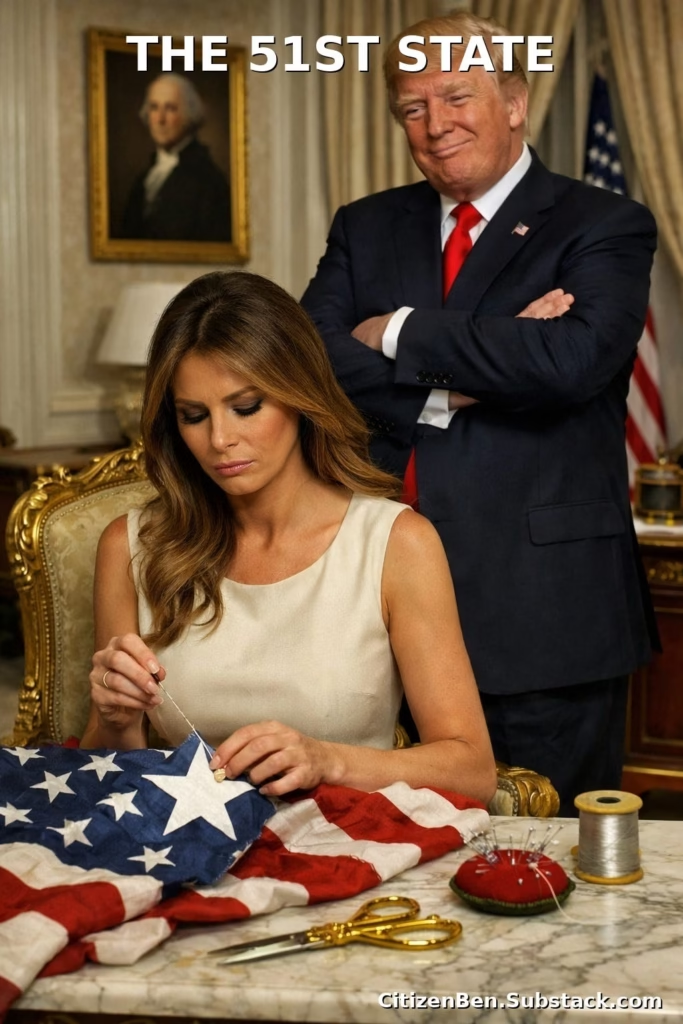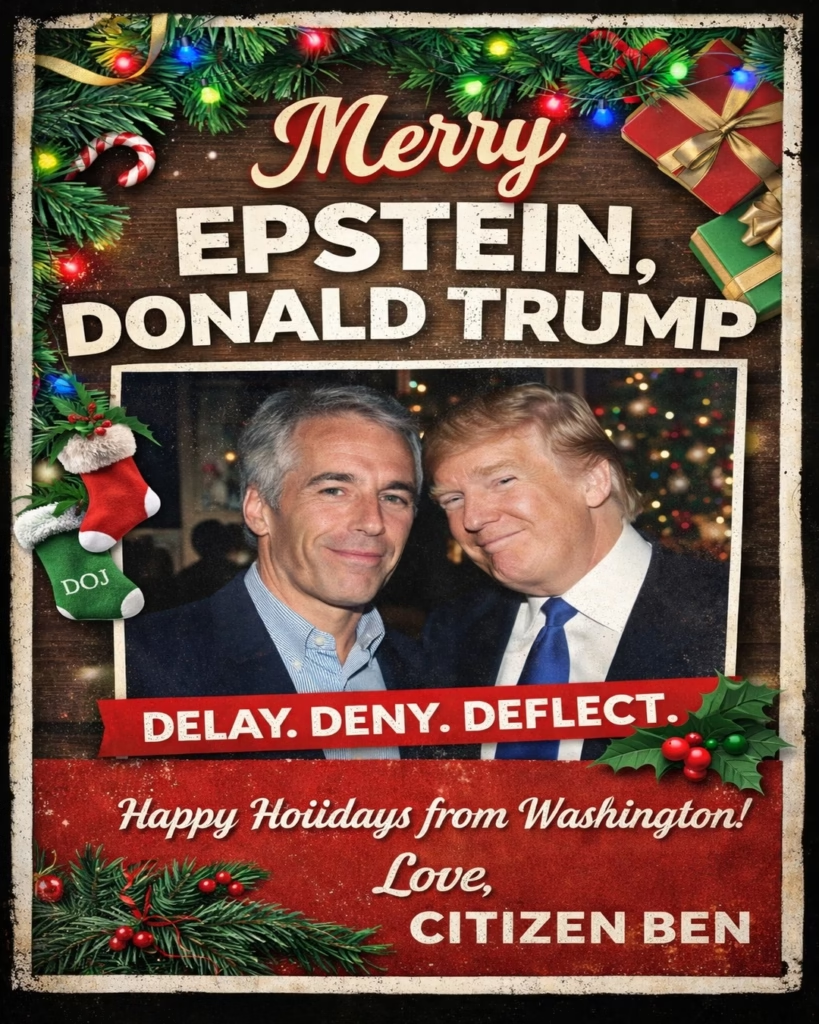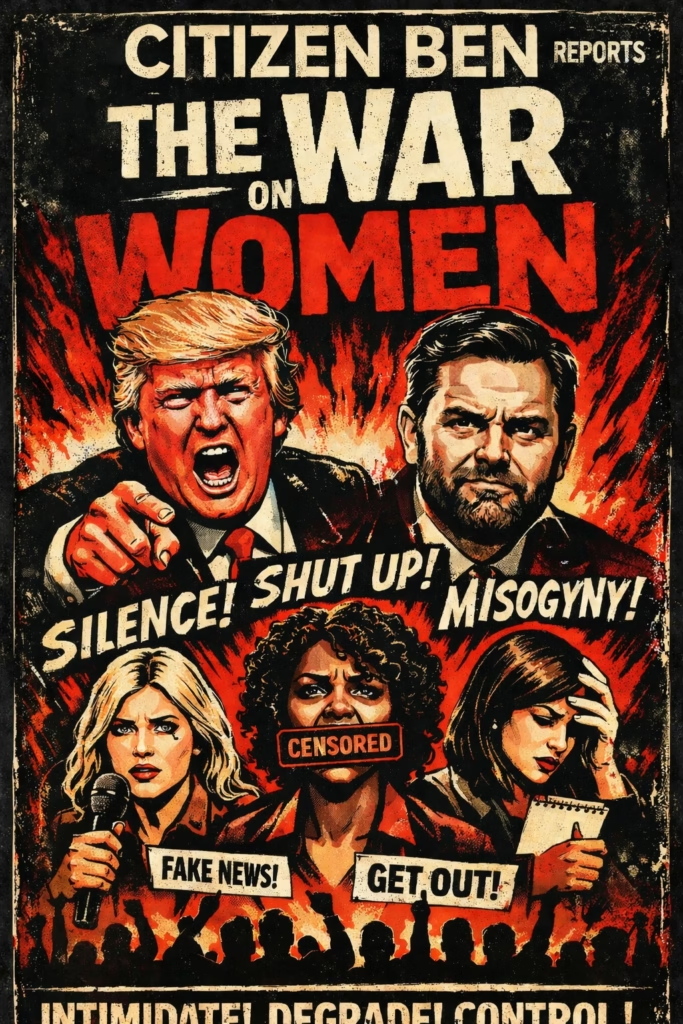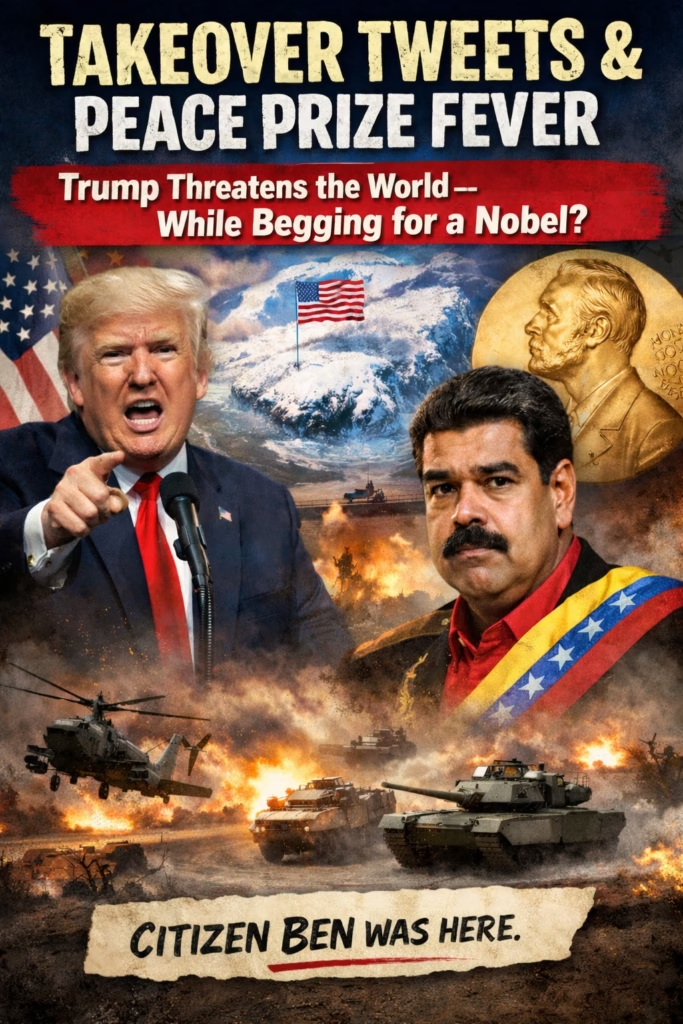Trump Administration Wants to Control Your Narrative
By Ben Cable (Originaly Published on Substack)
From the very moment America declared its independence, the press was viewed not as a luxury but as a bulwark against tyranny. In 1791, the First Amendment enshrined “Congress shall make no law … abridging the freedom of speech, or of the press.” That simple clause has undergirded an astonishing diversity of journalism: from the fiery pamphleteers of the Revolutionary era to today’s digital newsrooms.
“A free press is not a privilege but an organic necessity in a great society.” – Justice Hugo Black
One of the earliest Supreme Court affirmations came in Near v. Minnesota (1931). Minnesota had tried to silence a small newspaper it deemed “malicious.” Still, the Court struck down the statute as an unconstitutional prior restraint — a government attempt to censor publication before it occurs. This case cemented the principle that Americans enjoy a robust protection against government-imposed censorship.
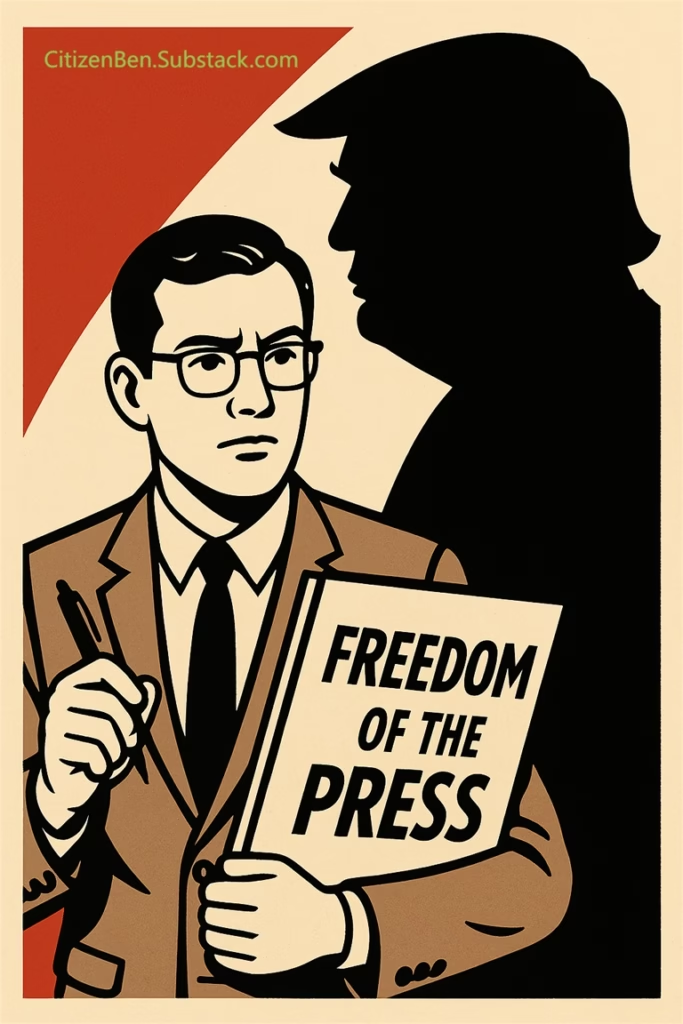
Over the decades, the Supreme Court has repeatedly sided with newspapers and broadcasters when government power threatened to muzzle them:
- New York Times Co. v. Sullivan (1964)
In this instance, a public official sued The New York Times for libel over an advertisement that contained factual inaccuracies. The Court held that public figures must prove “actual malice” (knowledge of falsity or reckless disregard for the truth) to win defamation damages. This high bar has allowed vigorous criticism of public officials without fear of crippling lawsuits. - New York Times Co. v. United States (the “Pentagon Papers” case, 1971)
When the Nixon administration sought to block publication of classified documents revealing hidden histories of the Vietnam War, the Times and Washington Post fought back. In a landmark 6–3 decision, the Court ruled that prior restraint was presumptively unconstitutional, and the government failed to meet the “heavy burden” of proof needed to justify censorship. This victory underscored that even matters of national security rarely trump the public’s right to know. - Nebraska Press Association v. Stuart (1976)
A trial judge barred the press from publishing details of a brutal murder to protect the defendant’s fair trial rights. The Supreme Court unanimously held that the “gag order” was an unconstitutional prior restraint, reaffirming that press scrutiny of criminal proceedings must be protected unless extreme circumstances demand otherwise.
These decisions illustrate how the Court has served as a guardian of press freedom, ensuring that powerful institutions cannot silence critical voices.
Last month (April 25, 2025), the Washington Post published an article regarding Attorney General Pam Bondi’s decision to reverse a Biden-era policy of not investigating journalists’ sources, often whistleblowers.
The attorney general said she supports an independent and free press and stated that the Justice Department would search reporters’ communication records only when other investigative methods had been exhausted. Bondi said she must approve all attempts to question or arrest journalists.
The last sentence from the Washington Post excerpt is chilling: “to question or arrest journalists”. The reason appears to be to stifle journalists from investigating, printing, or posting anything with which the Trump Administration disagrees.
Some of journalism’s most consequential stories have hinged on anonymous whistleblowers:
- Deep Throat and Watergate (1972): Bob Woodward and Carl Bernstein of The Washington Post relied on a source known only as “Deep Throat” to expose the Nixon administration’s abuses. When President Nixon famously declared, “I am not a crook,” it became clear that investigative power often lies behind the cloak of anonymity.
- Pentagon Papers (1971): Daniel Ellsberg risked prosecution to leak top-secret studies to the press, illuminating decades of policy missteps in Vietnam. Without his willingness to speak out under the condition of confidentiality, the public might never have learned of these critical truths.
Protecting informants is not merely a courtesy, it is essential to hold governments, corporations, and other powerful entities accountable. When sources fear exposure, retribution, or legal jeopardy, they clam up, and stories of significant fraud, corruption, or abuse remain hidden.
While the First Amendment clearly shields the press against censorship, its protection of confidential sources has been more nuanced:
- Branzburg v. Hayes (1972)
Reporters claimed a First Amendment privilege to refuse grand jury subpoenas for their notes and sources. By a narrow 5–4 margin, the Court ruled that no absolute constitutional reporter’s privilege exists. However, Justice Potter Stewart’s influential dissent argued for a qualified privilege when disclosure would threaten news-gathering. His reasoning has guided many lower courts and state legislatures. - Cohen v. Cowles Media Co. (1991)
A campaign operative sued Minneapolis Star Tribune for breaking a promise of confidentiality. The Court held that the operative could recover under traditional state contract law, specifically promissory estoppel. Though not a shield ruling, it underscored the legal weight of journalists’ promises to informants.
In the wake of these decisions, 49 states and the District of Columbia (Wyoming being the exception) have enacted “shield laws” granting reporters a qualified privilege to protect the identities of their sources, often modeled on Stewart’s Branzburg dissent. Moreover, Congress passed the Privacy Protection Act of 1980, restricting government searches and seizures of newsroom materials. These statutes demonstrate a consensus: even if the Supreme Court has stopped short of an explicit constitutional privilege, the rule of law empowers and protects confidential journalism.
Freedom of the press is not a spectator sport. It demands engagement from journalists, citizens, and courts alike:
- Journalists must honor their promises to sources and follow rigorous ethical standards, ensuring the credibility that underpins public trust.
- Citizens should support independent media via subscriptions, advocacy, and by challenging attempts at censorship or intimidation.
- The judiciary remains a vital referee, ensuring that any curbs on press freedoms meet the exacting standards mandated by our Constitution.
“Sunlight is said to be the best of disinfectants.” – Supreme Court Justice Louis Brandeis
By defending the right to publish, investigate, and protect the brave individuals who come forward, we maintain a healthy, transparent, and accountable democracy. Whenever you pick up a newspaper or scroll through an online article, remember that behind that story are journalists and their sources working, often at significant personal risk, to shine light into the shadows. And that light protected by law, strengthened by principle, is the cornerstone of a free society.
Freedom of the press is far more than a lofty principle on parchment—it is the lifeblood of an informed, engaged citizenry. When journalists are free to investigate, critique, and reveal uncomfortable truths, they shine a light on corruption, abuse, and inequity that would otherwise fester in the shadows. This transparency empowers voters to make informed choices, holds public officials accountable, and incentivizes better governance.
In classrooms, courtrooms, boardrooms, and living rooms alike, a vigorous press fuels debate, stokes innovation, and preserves the very idea that power derives from the consent of the governed. Without it, democracy atrophies into cynicism or, worse, authoritarian impulse.
By contrast, in nations such as Russia and China, press freedom either exists in name only or is nonexistent altogether. In Russia, independent outlets such as Novaya Gazeta have been hounded with fines, raids, and the murder of reporters. At the same time, successive “foreign agent” laws stigmatize any news organization that seeks to report honestly on government actions. In China, the Great Firewall blocks vast swaths of foreign and domestic reporting, and state-run media dominate the airwaves with carefully vetted “news.” Citizen journalists who document human-rights abuses, like those who recorded the early days of the COVID-19 outbreak, face arrest, surveillance, or coerced disappearances. In both systems, the suppression of dissenting voices leaves societies starved of reliable information, and citizens powerless to challenge the official narrative.
In 2025, the Trump administration took unprecedented steps to intimidate the press. It instituted formal blacklists to exclude critical outlets from presidential events, famously barring Associated Press reporters from the Oval Office and press briefings when the AP refused to use the administration’s preferred name, “Gulf of America,” instead of “Gulf of Mexico.” At the same time, President Trump filed a multi-billion-dollar defamation suits against networks like CBS and spread rhetoric labeling mainstream outlets as “corrupt and illegal,” chilling journalistic inquiry.
Moreover, Attorney General Pam Bondi’s Justice Department has openly targeted newsrooms for raids and subpoenas in search of reporters’ phone and email records—moves reminiscent of authoritarian regimes and at odds with federal guidelines meant to shield confidential sources.
We cannot take a free press for granted. When ordinary people stay silent in the face of attacks on journalism, we all lose our check on power. Imagine a world where whistle-blowers shrink back for fear of exposure, where elected officials rewrite the facts to suit their agenda, and where only state-sanctioned narratives reach our ears: that is the very definition of tyranny.
By speaking out, whether it’s calling your representatives to strengthen shield laws, subscribing to independent outlets, or simply sharing trustworthy reporting, you amplify the truth and send a clear message that censorship and intimidation will not stand.
Every voice raised in defense of journalists is a beacon of accountability and a shield for the next story that might expose corruption, injustice, or abuse. In protecting a free press, we safeguard not just reporters but the rights of every citizen to know, to question, and ultimately, to choose.
